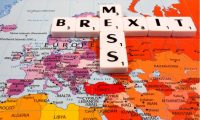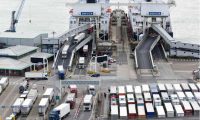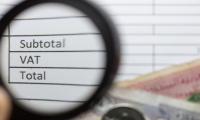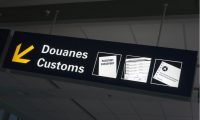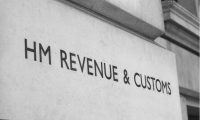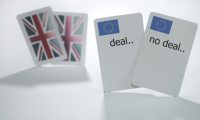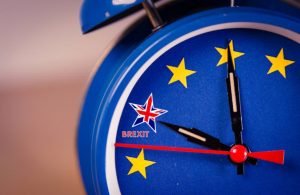
Shahid Miah, director of Birmingham-based fraud solicitors, DPP Business & Tax, looks at how a No-Deal Brexit will impact on VAT
This article is the view of the author and not necessarily of Ready for Brexit
Currently, the terms under which the UK will leave the EU remain uncertain. As a result, UK-based businesses have a number of questions regarding post-Brexit trade that stand unanswered. One of the most pressing is the question of how a no-deal Brexit will affect VAT.
While we await the confirmation of a deal between our Government and the EU, we know that any changes to the way in which businesses export or import goods and services between any EU member state and the UK are liable to have a profound knock-on effect on logistical matters, cash flow and accounting.
So what will happen to export and import taxation after Brexit, and how will a no-deal Brexit affect VAT?
How Does Brexit Affect VAT at the Moment?
After Britain joined the EEC (European Economic Community) in the 1970s, the country adopted ‘Value Added Tax’ – or VAT – a system that had originated in France. Following our departure from the EU, we will still be required to pay VAT when trading within the EU.
The current UK/EU VAT arrangement
At present, most goods and services sold within both the UK and EU are subject to VAT. Goods that are brought into the UK from the EU are usually referred to as ‘acquisitions,’ and goods brought in from outside the EU are usually called ‘imports.’
There currently are no customs rates to be paid on UK acquisitions from within the EU, and VAT is charged at the normal UK rate of 20%. This can be claimed back later via a tax return. Business to business acquisitions are accounted for using a ‘reverse charge’ procedure undertaken by the buyer on their tax return.
Imports from outside the EU may be subject to import duty. If these goods are to be sold in the UK, the seller will be required to pay VAT at 20% when this happens. Regular importers can defer payment of VAT and duty by opening a deferment account with HMRC. Companies selling goods worth £135 or less that are to be shipped to the UK from any other country after Brexit will be required to register for import VAT, and are able to do so from the present time.
Under current legislation, when goods are exported from the UK to another EU member state, VAT is charged at either UK or EU rates, depending on the relevant distance selling thresholds. If a UK business delivers goods to a private customer within an EU member state – whether physically or online – and its turnover exceeds the receiving country’s distance selling threshold, the business must register for VAT in that member state. If the company’s sales within that country fall below its threshold, it is not required to register. Instead, VAT should be applied at the rate that is relevant to the country in question. VAT is not charged at the point of sale when goods are exported from the UK to a non-EU country, as they are zero-rated.
When it comes to the export of services, the VAT rate of the ‘place of supply is charged to the customer. The UK government predicts that there will be no major change to VAT rules for most companies following Brexit. However, depending on the circumstances under which we leave (i.e. with a deal or without), there may be a number of changes that UK companies trading with EU member states should be aware of to prevent any major disruption to their logistics, supply chains or cash flows.
What might happen to VAT in a No-Deal Brexit?
The impact of a no-deal departure on international trade taxation is currently relatively unclear. However, while much of the legislation involved is likely to remain the same, it is likely that a number of changes will take place. Specifically, the UK will be considered a non-EU country following Brexit and, as such, the Union’s rules regarding trade between its member states and the rest of the world will then apply. UK businesses would be required to pay VAT on goods entering the country in the same way as other non-EU territories.
Imports
UK businesses are likely to face VAT and customs duties at the point of their goods’ arrival into the UK following a no-deal Brexit. However, the Government has stated that ‘postponed accounting’ will be introduced on UK imports from both the EU and the wider world. This means that VAT-registered companies importing goods into the UK will be able to account for the VAT they owe on their tax return instead of paying it upon the arrival of their goods. This will not cover any customs duties that are to be paid, however.
Should the UK government fail to implement postponed accounting, importers in the UK would be liable to pay VAT at 20% at the point their goods enter the UK, and the tax would not be recoverable until their next return – potentially seriously affecting cash flow.
Under current legislation, shipments of a lower value that are sent between EU member states may currently be eligible for Low Value Consignment Relief under EU VAT Directive 2006/112/EC. Member states reserve the right to set this amount between €10 and €22. However, under the 2017 Customs Bill White Paper, this relief will no longer be available for goods entering the UK from the EU following a no-deal Brexit.
As a result, all parcels entering the UK – except those that are already exempt under domestic rules – will be liable for VAT. The amount will be charged at the point of purchase.
As previously mentioned, companies shipping goods worth £135 or less can currently register for import VAT. On goods worth more than £135, the same tax will be liable as from any other non-EU country. You can find the precise procedures here.
It is predicted that there will be no change to legislation surrounding the NOVA system for importing vehicles to the UK following Brexit – whether we achieve a deal or not.
Exports
Similarly to the treatment of imports, should the UK leave the EU without a deal, it is likely that exports from the UK to EU member states will be treated in the same way as exports from the rest of the world. To this end, UK businesses would have to take into consideration the legislation applied to non-EU imports by each individual member state to which they intend to ship goods. It’s likely that they will be required to continue to register for VAT in each individual EU country to which they will be shipping goods.
As a non-EU country, UK exports to the EU will likely be zero-rated, and distance selling arrangements with member states will no longer apply. The way in which sales to EU member states will be recorded, as UK businesses, will no longer be required to add to EC sales lists. As a result, it’s likely that more administration will be required – as each company may be required to independently record evidence that their goods have been exported to qualify for zero-rating.
Services
The aforementioned ‘place of supply’ rules are likely to continue to apply to the export of services following a no-deal Brexit. However, there may be changes to VAT deduction rules for insurance and financial services provided by UK businesses to EU member states. The exact implications regarding this change have not yet been detailed.
VAT Refunds
Following a no-deal Brexit, the UK will be required to follow the same procedures as other non-EU countries when claiming VAT refunds. Immediately after Brexit, the current system by which UK businesses will be able to claim VAT refunds within the EU will be closed. Following this, the 13th Directive refund scheme must be used. This is a method used by non-EU countries and requires businesses to submit hard copies of all forms and invoices.
The UK government has proposed that, following Brexit, EU businesses will be able to manually claim VAT refunds incurred prior to Brexit. The deadline to do so will be 30th September 2019 for VAT incurred in 2018 and 30 September 2020 for VAT incurred between 1 January 2019 and the final Brexit date. Following Brexit, a new scheme will be introduced that follows a similar process to the 13th Directive.
What Might Happen to VAT in a Brexit Scenario With a Deal?
There are a number of possible scenarios when it comes to the future of VAT should the UK leave the EU with a deal.
Under the Chequers’ deal proposed by Theresa May, the UK would continue to benefit from the same VAT system that applies to the rest of the EU – however, based on previous negotiations, it seems that the EU is unlikely to accept this part of the proposal. A ‘Canada-plus’ deal would also see the UK utilising the EU VAT system, with VAT required to be administered at the borders.
A ‘Switzerland’-style deal, on the other hand, would see us treated as a non-EU country, except for the aforementioned ‘place of supply’ rules and use of the reverse charge.
Current UK VAT legislation primarily centres around the UK’s VAT Act 1994, which is in turn based on EU VAT Directive 2006/112/EC (EVD) – a directive that is applied in different ways and to different degrees within each member state. Whether the UK leaves the EU with a deal or not, it’s likely that after Brexit, we will no longer be required to adhere to the legislation within the EVD – meaning there is likely to be more flexibility, and that we may be able to negotiate arrangements with each member state individually.
As is the case with a number of matters regarding the UK’s interaction with EU member states following our departure, the precise outcome of Brexit regarding trade is yet to be ascertained. Until we have a clear deal it will be difficult to predict where the UK will fit in terms of the wider world’s trading landscape. However, it is likely that leaving without a deal will lead to our businesses paying VAT and excise duty upon import, while our exports will be zero-rated – in a similar system to the way taxation and customs duties work between the EU and the rest of the world.
Specific systems – such as postponed accounting and registration for import VAT on goods worth £135 or less are likely to protect UK businesses from logistical and cash flow issues, but we still await the establishment of a clearer overall arrangement.















